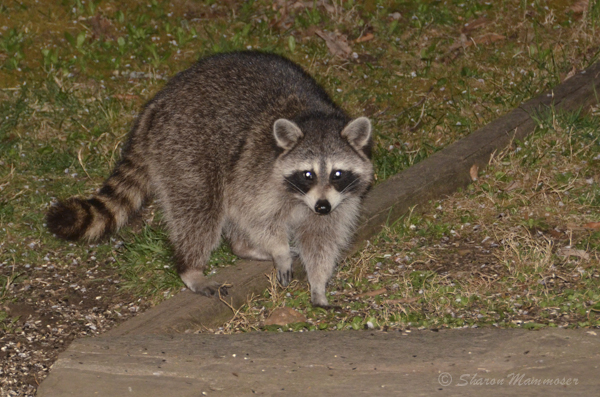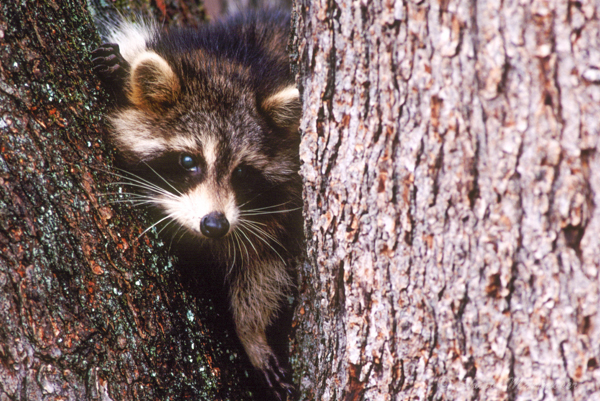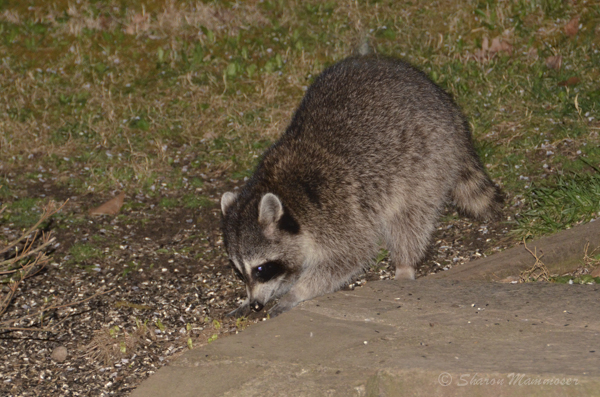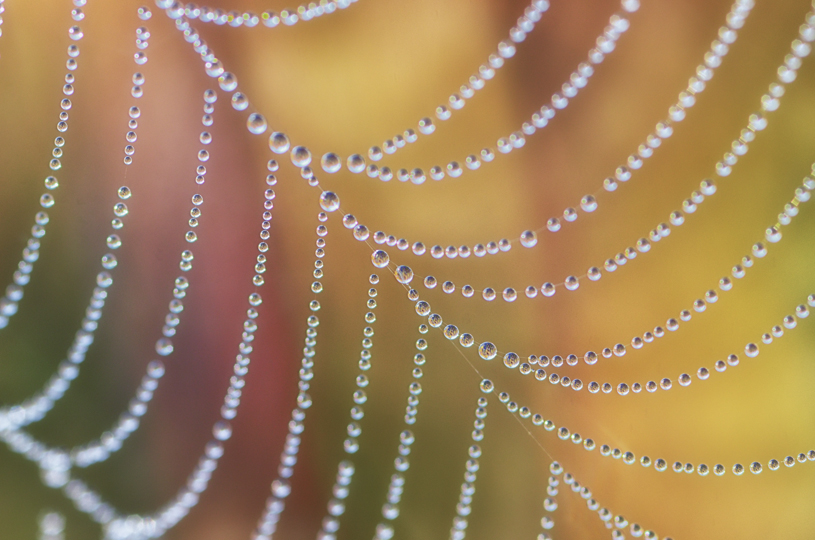 A pair of raccoons has been showing up in our yard each evening just before sunset. They dig around in the ground under the feeder, likely looking for seeds missed by our daytime visitors. When I turn the light on to check for them, they just look up from their foraging, not minding enough to move off into the darkness. They are bold and curious and like just about any wildlife, I love to see them in the yard and watch them going about their business, always ready to learn something new from my observations.
A pair of raccoons has been showing up in our yard each evening just before sunset. They dig around in the ground under the feeder, likely looking for seeds missed by our daytime visitors. When I turn the light on to check for them, they just look up from their foraging, not minding enough to move off into the darkness. They are bold and curious and like just about any wildlife, I love to see them in the yard and watch them going about their business, always ready to learn something new from my observations.
Here are some things you may not know about raccoons:
1. Despite popular belief that says otherwise, they do not wash their food before eating it. Their hands have many more touch receptors than ours and they use their hands both as tools and as sense organs. In the wild, a raccoon often gets its food from water, using its hands as a way to “see” under the water. Food that does not come from the water is often rubbed between their fingers, or rolled on the ground. Raccoons in the wild can be seen rubbing their hands together even when they are not holding anything. The myth might have originated by watching raccoons in captivity, who will often dip their food in water before eating it. They do this not to wash it off, but to better “figure out” what it is with the many sense receptors in their hands. And despite another popular myth, they have perfectly adequate salivary glands and so do not wet their food in order to swallow it!
2. Raccoons are omnivores. They will eat pretty much anything, but have a preference for critters found in streams or ponds or other bodies of water. They eat crayfish, clams, fish, frogs, snakes, insects, slugs, fruit, nuts, dead animals, vegetables, birds, eggs and garbage.
3. Raccoons are mainly nocturnal. However, seeing one in the daytime doesn’t mean it has rabies. Especially in the spring when females have young, they might be out looking for food during the day. They also might be out and about on a warm winter day after they’ve been stuck in their den for weeks due to bad weather.
4. Raccoons do not hibernate during the winter. Instead, they have periods of dormancy or decreased activity when the weather is especially bad. They might hole up in a tree hollow and sleep for several weeks at a time. When a nice day arrives, they will venture out to look for food.
5. Raccoons are excellent swimmers, climbers and can even run up to 15 mph.
6. They have a lot of vocalizations, some of which may seem particularly scary to many people. They hiss, whistle, scream, growl and snarl. During mating season which is anywhere from January to June, they are especially vocal. Click here to listen to some raccoon vocalizations. Audio Player
From Lang Elliot of Nature Sound Studio7. Their characteristic ringed tail has anywhere from 4-8 rings on it. Their tails make up a third of their length at one foot long.
8. In the wild their lifespan is about 2-3 years. Besides dying on roadways from car collisions, they are eaten by bobcats, coyotes, wolves, owls and even some hawks.
9. The hind legs of a raccoon are longer than the front legs. This explains their hunched appearance when seen scurrying off into the night.
10. The female raccoon raises the young–called kits–alone. After a 65 day gestation period, she will have 2-3 kits, born in a den. Dens can be in many different spots, from hollows in trees, to brush piles or rock piles, to crawl spaces, abandoned cars and even attics or wood duck boxes. The kits will stay in the den until they are 7 weeks old and after that, will stay with mom for up to 13 or 14 months.
 Bonus fact: The english word for raccoon is derived from a Powhatan word meaning “animal that scratches with its hands.” If you’ve ever watched a raccoon in the wild, you will see that this is the perfect name for a raccoon!
Bonus fact: The english word for raccoon is derived from a Powhatan word meaning “animal that scratches with its hands.” If you’ve ever watched a raccoon in the wild, you will see that this is the perfect name for a raccoon!
Special Note: Raccoons do not all carry rabies, but since some DO, it is important to never touch or approach a raccoon. Rabies is a deadly viral disease that causes death. Also, raccoon feces can have roundworm, a parasite that can cause blindness, brain damage and even death. Because of these two risks, people are advised NOT to raise raccoons as pets and always instruct your children not to approach or try to touch a wild animal and to wash their hands after they have been outside playing.


1 thought on “Do Raccoons Really Wash Their Food?”
Comments are closed.